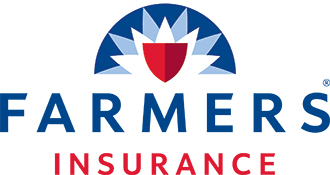Keep Your Home Safe and Avoid Costly Repairs
Regular home maintenance is essential to prevent small issues from becoming major problems. Here are some simple tips to help you keep your home safe and potentially avoid expensive repairs:
- Inspect Steps and Walkways: Ensure that steps and walkways are in good condition, and that handrails are sturdy and securely fastened.
- Proper Lighting: Ensure doorways, steps, porches, and walkways are well-lit.
- Clear Paths: Keep stairs, hallways, and exit paths clear. Make sure doors and windows open easily.
- Seal Windows and Doors: Check that windows and doors are secure and do not leak air or water. Use silicone caulk for repairs.
- Stove Safety: Keep the area above the stove free from flammable and combustible items.
- Roof Inspection: Regularly inspect your roof. If you notice damage, have a licensed professional make necessary repairs.
- Maintain Gutters: Keep gutters clear of debris to ensure proper drainage.
- Clear Roof Debris: Remove dead leaves, tree branches, and other vegetation from your roof.
- Trim Trees and Shrubs: Trim trees and shrubs, cut weak branches, and remove any limbs that could damage your home.
- Deck Safety: Never store combustible materials under your deck.
- Detector Maintenance: Change the batteries in your smoke and carbon monoxide detectors once a year.
- Dryer Safety: Remove lint from your dryer after every use.
- Washing Machine Hoses: Replace rubber hoses on your washing machine with braided steel hoses to reduce the risk of leaks.
- Visible House Number: Make sure your house number is easily visible from the road to assist emergency response teams.
Prevent Costly Water Damage
Water damage can lead to major issues and expensive repairs. Regularly inspect your plumbing and make necessary repairs to avoid costly failures. Here’s how:
- Prevent Frozen Pipes: Set your thermostat to a minimum of 60 degrees during winter months, let faucets drip, and insulate pipes.
- Leak Detection System: Install a house leak detection system as a backup.
- Toilet Maintenance: After flushing, wait for the toilet valve to finish refilling. If overflow looks imminent, turn off the supply valve. Inspect toilet components twice a year.
- Water Heater Check: Check the life expectancy and warranty of your water heater and replace it as needed.
- Sewer System Protection: If connected to the city’s sewer system or if your home is below street level, consider installing a backflow prevention assembly.
- Tree Planting: Plant trees away from lateral drain lines to prevent root damage to pipes.
- Washer Hoses: Replace washer hoses with braided steel hoses.
- Vacation Precautions: Turn off the hot and cold water supply valve when leaving the house for an extended period.
Contact a plumbing professional if you notice any of these potential indicators of a plumbing problem:
- An increased monthly water bill
- Banging pipes
- Rust stains
- Moisture in walls or on floors
- Signs of wet soil erosion near the foundation
Speaking of plumbing professionals, in this episode of Let’s Talk Insurance, we speak with guest Matthew McClure, with McClure Plumbing, about smart plumbing! He lets us in on new leak detection technology and more preventative measures to take!
As summer approaches, it’s important to take steps to protect your home, ensure safety around your pool, prevent grill fires, prepare for summer storms, and deter theft while you’re away. Here are some practical tips:
Home Inspection Before Vacation
Did you know? An 8-inch crack in your pipes can spew up to 250 gallons of water a day.
Tips to protect your home while you are away:
- Turn off the water supply to individual fixtures like your washing machine, ice maker, toilets, and sinks. Flooding often occurs when hoses are worn or ruptured, or there is a leak at the connection.
- Use storm surge protectors on high-end electronics in case bad weather leads to flooding or fire.
Pool Safety
Did you know? An average of 350 children younger than 15 years old drown in a swimming pool or spa between Memorial Day and Labor Day each year.
Tips to keep your kids safe by the pool:
- Never leave children unsupervised around water, even if they know how to swim.
- Enclose the pool on all sides with a self-locking, self-closing fence with vertical bars. Openings in the fence should be no more than 4 inches wide.
Grill Safety
Did you know? June and July are the peak months for barbecue fires.
Tips to prevent a grill fire:
- Place the grill outdoors and away from the house, deck, overhead branches, and anything else that may catch fire. Clean and remove any grease or fat buildup on the grill.
- If the flame goes out on your propane grill while cooking, turn off the grill and the gas. Wait 15 minutes before relighting to allow the propane to dissipate and avoid a gas explosion.
Summer Storm Preparation
Did you know? Extreme heat can lead to powerful thunderstorms.
Tips to minimize property damage from a summer storm:
- Remove dead or rotting trees and branches that could fall and cause injury or damage.
- Keep your home’s gutters clear of debris. Gutters control water around your home, and when obstructed, water can pool around the edge of the roof and foundation, causing flooding and roof leaks.
Theft Prevention
Did you know? A home is burglarized every 10 seconds, and 62% of all burglaries happen during the daytime.
Tips to protect you from being a victim of theft:
- Have a security plan for when you are on vacation. Ask a trusted neighbor to pick up mail, move vehicles, and more.
- Don’t post your travel plans online. Many thieves use social networking sites to monitor when homeowners are out of town.
As the temperatures rise, it’s important for drivers to stay vigilant on the roads, especially with the increased presence of pedestrians and bicyclists. Here are some crucial tips to ensure a safe and enjoyable driving experience during the summer months.
Sharing the Road:
- Stay Aware: Don’t assume that pedestrians see you or will act predictably. Always be on the lookout, especially at intersections where pedestrian traffic is common. In recent years, around 6,000 pedestrians and 850 bicyclists have been killed annually in crashes with motor vehicles.
Vehicle Maintenance:
- Battery Care: Summer heat can take a toll on your car battery by causing fluid evaporation, damaging its internal structure. Keep an eye on signs of a weak battery and ensure its top remains clean to prevent drainage and corrosion.
- Regular Checks: Make it a habit to inspect your tires for signs of wear and proper inflation. Underinflated tires increase the risk of accidents, so maintain them at the manufacturer’s recommended air pressure.
- The Penny Test: Use the penny test to gauge tire tread depth. If you can see the top of Lincoln’s head when you insert a penny into the groove, it’s time to replace the tire.
Fuel Efficiency:
- Drive Smart: Aggressive driving habits like speeding, rapid acceleration, and harsh braking can significantly reduce fuel efficiency. Drive sensibly and observe speed limits to save on gas.
- Fuel Consumption: Understand that a substantial portion of fuel energy in conventional vehicles is lost to engine inefficiencies and accessory power. Driving more efficiently can help minimize this waste.
Teen Driver Safety:
- Educate Teens: Make sure your teenage drivers understand the risks associated with unsafe driving practices. July tends to be the deadliest month for teenage drivers, so proper education is crucial.
- Establish Guidelines: Create a formal Teen Driving Contract outlining rules and consequences associated with driving privileges. Set driving curfews to minimize the risk of accidents, as a significant portion of teen driving fatalities occur late at night.
By following these tips, drivers can enhance their safety, prolong their vehicle’s lifespan, and contribute to a smoother driving experience for everyone on the road during the summer season. Stay safe and enjoy the ride!
In recent years, the severity and frequency of wind and hail accompanying storms, tornadoes, and other weather phenomena have escalated, resulting in heightened damage to homes nationwide. Home insurance policies are specifically crafted to offer financial protection against significant, unforeseen events leading to damage or loss, rather than addressing routine maintenance or gradual wear and tear.
These costly wind and hail events pose a growing concern, with trends indicating a sustained pattern of destruction. In the past five years, wind and hail claims have constituted a staggering 66% of total catastrophic claims. Notably, insured losses stemming from wind and hail events in the United States exceeded $50 billion in 2023, marking an unprecedented milestone in recorded history. On average, the annual damage inflicted by hailstorms on residential properties, vehicles, and agricultural crops in the US is estimated to be around $15 billion. In 2022 alone, nearly 7 million properties across the US experienced at least one damaging hail event.
Several factors contribute to the intensification of wind and hail claims:
- Population Growth: The influx of people relocating to and constructing homes in hail-prone areas amplifies vulnerability.
- House Sizes: The trend toward larger, newer homes translates to more substantial damage and higher costs.
- Inflation: Escalating costs of labor and materials consistently drive up the expenses associated with insurance claims.
In light of these concerning developments, it’s imperative for homeowners and insurance providers alike to remain vigilant and proactive in addressing the escalating risks posed by wind and hail events. By understanding the contributing factors and taking proactive measures, homeowners can better safeguard their properties and mitigate the potentially devastating impacts of these severe weather events.
- 1
- 2
- 3
- …
- 7
- Next Page »

